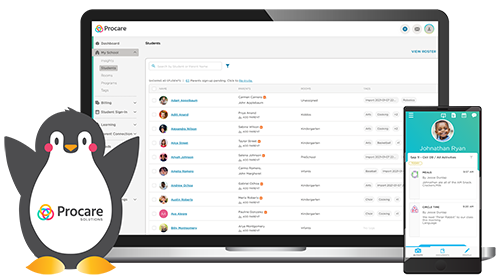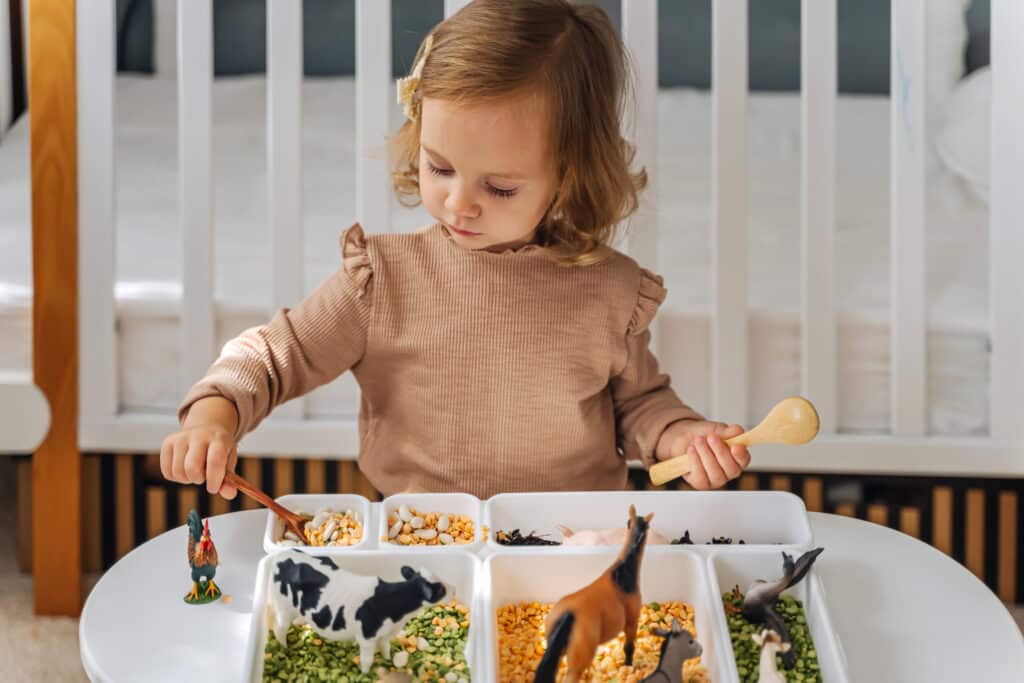
Few methods of play are as important for toddler development as sensory play. When a child is involved in a sensory-stimulating activity, they’re developing a number of important skills including math, independent thinking, gross-motor and self-control.
But coming up with the best sensory play ideas can be difficult. Plus, many sensory ideas for toddlers can be messy or expensive.
Let’s take a look at five ideas for sensory play that you can introduce into your preschool and early childhood education programs!
Go on a Sensory Safari
Your kiddos will love exploring the wild world of animals and senses with this animal sensory bin. Create animal habitats using different materials like dried beans and corn kernels and find plastic animals that belong in each one.
Preschoolers will have a blast decorating the bins to match each environment — and they’ll be able to use their imagination to tell different stories with each animal toy.
After playtime, incorporate a book featuring some of the sensory bin animals into circle time to keep the conversation going.
Sensory Bottles Can Help Calm Big Emotions
When it comes to easy sensory activities for preschool, there are few easier (or more effective) than these calm down sensory bottles. Your students will be introduced to basic science concepts while making their bottle — and they’ll get to express their individuality by selecting the colors and items they want to be included.
Once your class has completed their bottles, store them in an easy-to-access place. That way, any time students feel upset or overwhelmed, they can reach for their bottle to help calm their emotions.
Get Sandy!
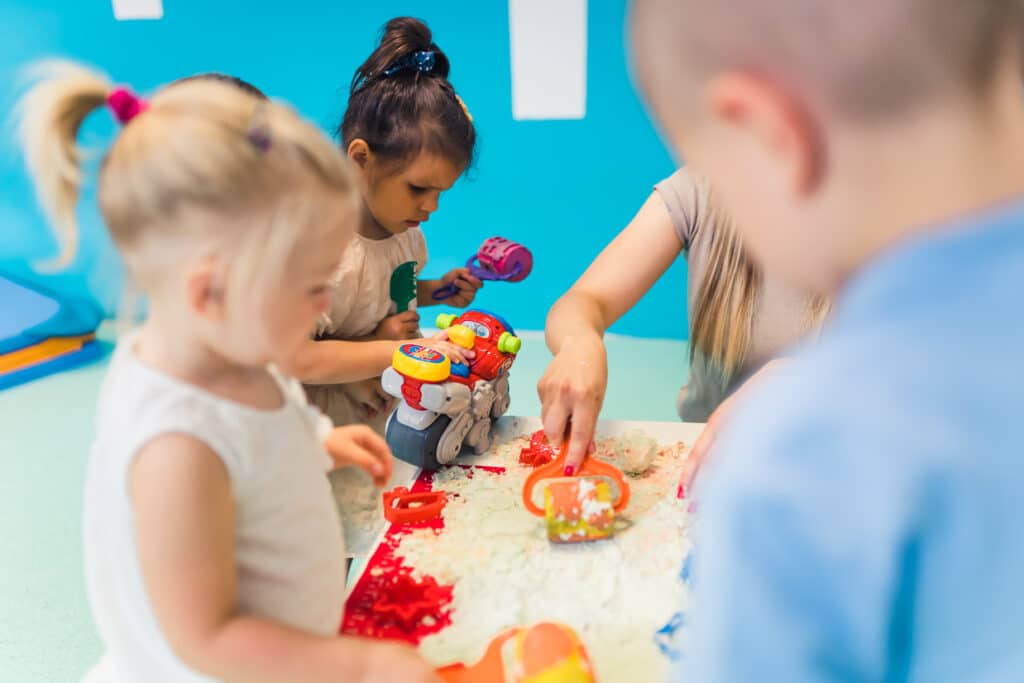
Turn any day into a beach day with this taste-safe sand bin. This bin can be done individually to allow each student to express his or her creativity or in a large kid-sized play pool to allow the entire class to play together.
As with all great sensory ideas for toddlers, these bins can be created with whatever toys you have around the classroom, which means fewer additional costs for you.
Start Jamming
Help your younger kids explore sounds with this interactive sound treasure basket. Made almost exclusively from items you likely already have around your preschool, these treasure bins are a cost-effective way to walk your students through the different sounds items can make.
The treasure basket can be something you make for each student or you can include it as an option for students during free play. Either way, they’ll love jamming out with the items inside!
Escape to the (Slimy!) Rainforest
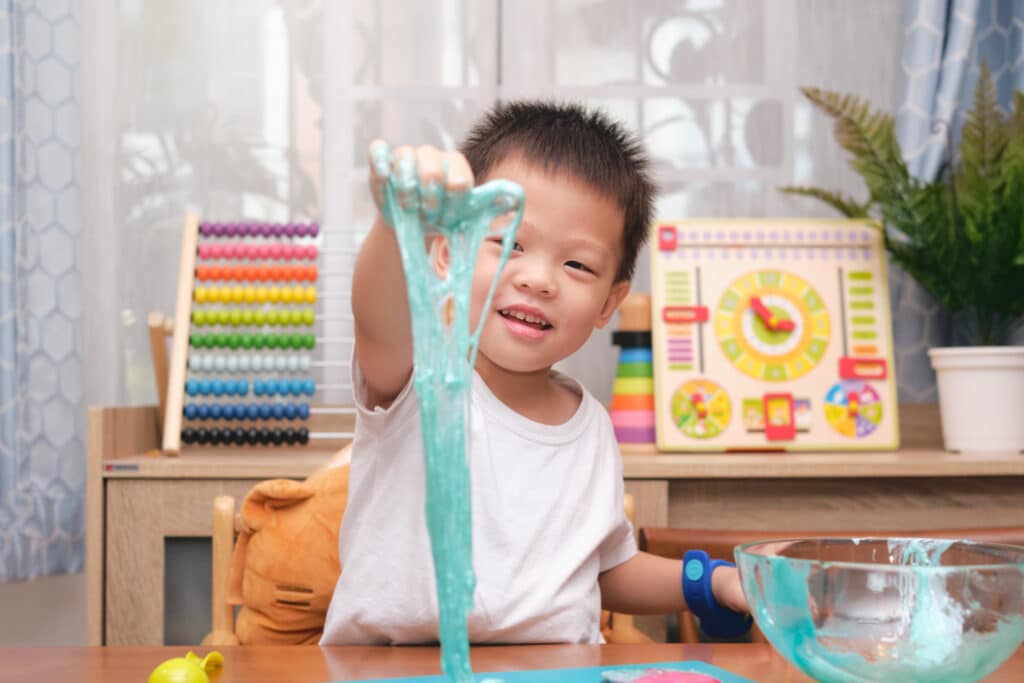
No sensory play ideas list would be complete without a slime activity — and this jungle slime recipe is one of our favorites! Take your classroom outside and give each child a container and the ingredients to create their own slime to play with and take home at the end of the day.
By incorporating washable liquid watercolors and glitter, you’ll be able to create a rainforest-themed slime. You can then have your students pick out their favorite jungle items to incorporate into their slime mess. Before starting your slime adventure, be sure to walk your students through The Great Kapok Tree for inspiration.
Age-Appropriate Curriculum Matters!
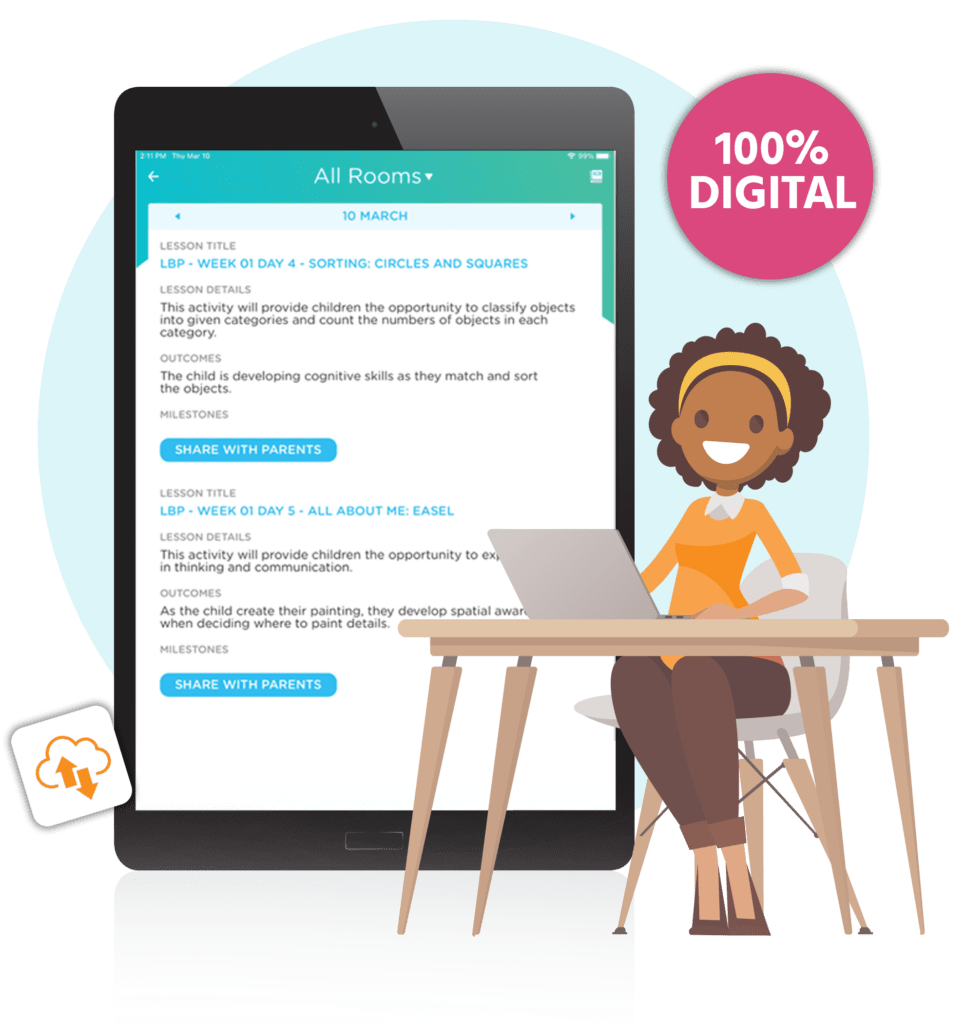
Too many people believe that curriculum only benefits school-age kids. But incorporating age-appropriate learning into preschool and early childhood education programs is vital to prepare children for kindergarten and aid their development.
As you plan for your daycare’s future, you may be evaluating whether your current curriculum, or lack of one, is meeting the needs of your teachers and young learners.
Procare Early Learning powered by Learning Beyond Paper is a 100% digital curriculum that integrates seamlessly with the Procare app and includes:
- 52 weeks of lesson plans for five age groups – infant, young toddler, older toddler, preschool and pre-kindergarten
- Over 4,000 daily and weekly activities, with material lists, learning support, social-emotional development and at-home connection newsletters to engage parents
- Lesson plans and daily activities are presented in a developmental progression
- Learning areas including STEAM, language and literacy, physical development, music and movement, cognitive and interactive reading
- Training is built in, with tips and tools teachers can use in real time
No expensive books, no long hours prepping lessons and no stress for your teachers!
Early learning curriculum is important for young children. Once you invest in an educational program for your daycare, you’ll be able to teach your kids important life skills, while making your business more attractive to parents.
Download our free eBook to learn what an integrated digital curriculum can do for your child care center!

